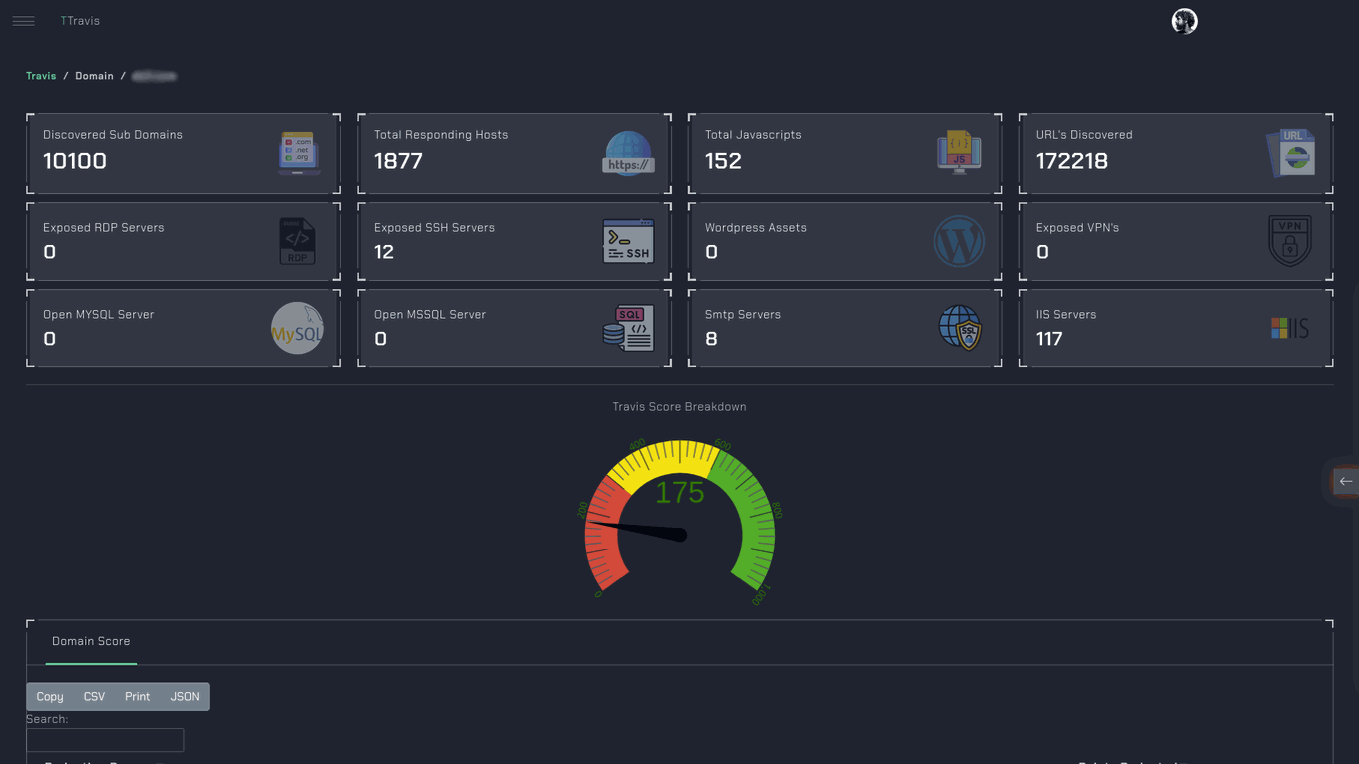Pull up a chair (or stand at your ergonomic desk) because we need to have a chat about something called CVE-2024-7553. Don't worry, I promise this'll be more interesting than watching paint dry.
What's the Scoop?
It's August 8, 2024, and while you were busy debating whether AI will ever truly understand sarcasm (jury's still out on that one), the cybersecurity world got a wake-up call in the form of a MongoDB vulnerability that's about as welcome as a pop-up ad on a mobile site.
CVE-2024-7553, or as we might call it, "The 'Oops, Did I Leave That Door Unlocked?' Bug," was announced yesterday. And let me tell you, it's got database admins reaching for their stress balls faster than you can say "backup and restore."
The Nitty-Gritty (or "Why This Matters")
Let's break it down in terms that won't make your eyes glaze over:
- What's at stake? We're looking at potential local privilege escalation. In simpler terms, it's like accidentally giving the intern the keys to the executive bathroom – things could get messy.
- Who needs to pay attention? If you're running MongoDB on Windows, this one's got your name on it.
- How serious is it? On a scale of "minor inconvenience" to "time to update the resume," we're at a concerning 7.3 out of 10.
This little troublemaker affects:
- MongoDB Server (in more flavors than your local ice cream shop)
- MongoDB C Driver (because variety is the spice of life, right?)
- MongoDB PHP Driver (PHP developers, I see you nodding knowingly)
Why This Should Be on Your Radar

I know, I know. Another day, another vulnerability. But before you file this under "I'll deal with it later," consider this:
Your database is like a digital vault. CVE-2024-7553 is essentially a weak spot in that vault's wall. Sure, it might not be a gaping hole, but even a small crack can lead to big problems if left unattended.
Still not convinced? Let's look at why this matters more than deciding what to watch on Netflix tonight:
- Data Integrity: Your data is the crown jewels of your digital kingdom. This bug? It's like leaving a window open in the castle.
- Compliance Considerations: GDPR, CCPA, HIPAA – pick your regulatory acronym. This vulnerability could put you on the wrong side of compliance faster than you can say "data protection officer."
- Reputation Management: In the age of social media, news of a data breach travels faster than a cat video. And it's significantly less cute.
Meet TRaViS: Your New favorite security tool

Before you start thinking about a career change to something less tech-focused (underwater basket weaving, perhaps?), let me introduce you to a ray of hope: TRaViS (Threat Reconnaissance and Vulnerability Intelligence System).
Think of TRaViS as the tech-savvy friend who always knows about the cool new gadgets before anyone else, but in this case, it's all about keeping your systems secure. It's here to:
- Detect vulnerabilities with the keen eye of a proofreader spotting typos
- Analyze threats as thoroughly as a detective in a crime novel
- Mitigate risks more efficiently than a professional organizer decluttering your workspace
- Monitor your systems round the clock, because unlike that houseplant you keep forgetting to water, TRaViS never sleeps
In the upcoming sections of our "Keeping Your MongoDB As Secure As Fort Knox" guide, we'll explore how TRaViS can transform your database security from "fingers crossed" to "bring it on, hackers."
Stay tuned, keep those systems updated, and remember: in the world of cybersecurity, a little caution goes a long way.
(P.S. If you haven't checked your MongoDB setup yet, now might be a good time. Better safe than sorry, right?)
II. CVE-2024-7553: The Uninvited Guest at Your Database Party
A. The "Oops, Who Left the Backdoor Open?" Bug
Alright, let's dive into CVE-2024-7553 – the vulnerability that's got database admins reaching for their emergency chocolate stash. Imagine your MongoDB server as a bouncer at an exclusive club. Normally, it's pretty good at keeping the riffraff out. But CVE-2024-7553 is like someone slipping the bouncer a $20 bill to let in their underage cousin.
Here's the deal in plain English:
- This bug affects MongoDB running on Windows (because who doesn't love a good OS-specific quirk?)
- It's all about "incorrect validation of files loaded from a local untrusted directory" (tech-speak for "MongoDB might trust files it really, really shouldn't")
- If exploited, it could lead to local privilege escalation (imagine giving your intern access to the CEO's email – yikes!)
The kicker? This isn't just a MongoDB server issue. It's also crashing the party in MongoDB C Driver and PHP Driver. It's like the bug equivalent of a family reunion – they all showed up uninvited!
B. Why This Bug is Scarier Than Your Last Performance Review
Now, you might be thinking, "It's just another vulnerability. No biggie, right?" Wrong! This little troublemaker is more important than remembering to wear pants during a video call. Here's why:
- It's a Privilege Party: Local privilege escalation means a small breach can turn into a "keys to the kingdom" scenario faster than you can say "sudo make me a sandwich."
- Windows of Opportunity: Since it's Windows-specific, it's targeting a massive chunk of MongoDB deployments. It's like fishing with dynamite – bound to catch something.
- Driver Danger: The inclusion of C and PHP drivers means it's not just about your server – your applications could be affected too. It's the vulnerability that keeps on giving!
- Compliance Nightmare: Nothing makes auditors salivate quite like a juicy vulnerability in your data handling systems. GDPR, HIPAA, and friends are watching!
- Reputation Russian Roulette: In the age of Twitter (or X, or whatever we're calling it now), news of a data breach spreads faster than gossip at a high school reunion. And it's way less fun.
C. Enter TRaViS: Your Digital Bodyguard with a PhD
Now that I've thoroughly ruined your day (you're welcome!), let me introduce the superhero of our story: TRaViS. No, it's not a hipster barista – it's the Threat Response and Vulnerability Intelligence System, and it's about to become your new best friend.
Think of TRaViS as the Swiss Army knife of cybersecurity tools, if that Swiss Army knife also had a degree in computer science and could bench press a server rack. Here's what makes TRaViS your go-to defense against the CVE-2024-7553s of the world:
- Eagle-Eyed Detection: TRaViS spots vulnerabilities like a fashionista spots last season's trends – quickly and mercilessly.
- Sherlock-Level Analysis: It doesn't just find problems; it figures out exactly how they might affect your specific setup. Elementary, my dear Watson!
- Customized Battle Plans: TRaViS doesn't believe in one-size-fits-all solutions. It crafts mitigation strategies tailored to your environment, like a bespoke suit for your security needs.
- 24/7 Vigilance: Unlike that fitness tracker you bought (and never use), TRaViS never sleeps. It's always on the lookout for new threats.
- Plays Well with Others: TRaViS integrates with your existing tools faster than you can integrate cheese into your diet. Mmm, cheese.
III. CVE-2024-7553: When Your Database Decides to Trust Everyone
A. The Nitty-Gritty: What's Really Going On Here?
Alright, tech detectives, it's time to put on our deerstalker hats and dive into the mystery of CVE-2024-7553. Imagine this vulnerability as that one friend who always falls for phishing emails - too trusting for their own good.
1. The "Sure, Come On In!" Problem
At its core, this vulnerability is all about MongoDB's overly trusting nature when it comes to files. It's like leaving your front door wide open and hoping only your friends will walk in.
- MongoDB is incorrectly validating files from untrusted directories.
- In human speak: It's reading files it shouldn't, like a nosy neighbor peeking through your windows.
- The problem? These files could contain malicious code, ready to wreak havoc faster than a cat video goes viral.
2. Windows: The Unintended Welcome Mat
Now, here's where things get spicy - this vulnerability has a particular fondness for Windows systems. It's like the vulnerability equivalent of having a favorite child (tsk tsk).
- On Windows, this bug can lead to local privilege escalation.
- Translation: It's like accidentally giving your intern the master key to the office. Suddenly, they have access to everything from the supply closet to the CEO's secret snack stash.
- Why Windows? Because apparently, vulnerabilities like to keep things exciting by being platform-specific sometimes.
3. The MongoDB Family Reunion (of Doom)
This isn't just a one-product show. Oh no, CVE-2024-7553 decided to invite the whole MongoDB clan to this party:
- MongoDB Server: Affected versions include 5.0 before 5.0.27, 6.0 before 6.0.16, 7.0 before 7.0.12, and 7.3 before 7.3.3. It's like a family tree, but every branch is a potential security headache.
- MongoDB C Driver: Versions before 1.26.2. Because why stop at the server when you can also crash the driver party?
- MongoDB PHP Driver: Versions before 1.18.1. PHP developers, I see you there, quietly panicking.
B. Why Your CEO Might Actually Care About This One
1. Security Risks: It's Not Just About the Data
When we talk about the impact, we're not just talking about a minor oopsie. We're in "sound the alarms" territory here.
- Data Breach Bonanza: With elevated privileges, an attacker could access, modify, or delete data faster than you can say "Where's our backup?"
- Lateral Movement Madness: Once they're in with higher privileges, attackers can spread through your network like a bad office rumor.
- Stealth Mode Activated: High-level access means attackers can cover their tracks, possibly remaining undetected longer than that leftover lunch in the office fridge.
2. Compliance: Where Things Get Really Fun (and by Fun, I Mean Expensive)
In the world of data regulations, ignorance is definitely not bliss. It's more like a fast track to Fines-ville, population: you.
- GDPR: The EU's data protection regulation doesn't just apply to EU companies. If you have EU customers, you're in the club. And they love handing out fines like party favors.
- HIPAA: For our friends in healthcare, HIPAA violations can lead to fines that'll make your accountant cry.
- PCI DSS: If you handle credit card data, PCI DSS non-compliance can result in penalties that'll have you considering a return to the barter system.
C. Why Finding This Bug is Like Where's Waldo, But Less Fun
Detecting and mitigating CVE-2024-7553 isn't exactly a walk in the park. It's more like a walk through a park where every tree might be hiding a squirrel ready to pelt you with acorns.
- The Invisibility Cloak: This vulnerability doesn't announce itself with flashing lights and sirens. It's sneaky, operating behind the scenes like a ninja in your database.
- Version Vexation: With multiple affected versions across different MongoDB products, keeping track of what needs patching is like herding cats – difficult and likely to leave you with scratches.
- The Windows of Opportunity: Being Windows-specific adds an extra layer of "fun" for organizations with mixed environments. It's like playing Whack-a-Mole, but the moles are only popping up on some of the machines.
- The Patch Predicament: Updating database systems isn't like updating your phone. It often requires downtime, testing, and a prayer circle of DBAs hoping nothing breaks.
- The Legacy Letdown: Older systems that can't be easily updated? They're like that old flip phone you keep "just in case" – charming, but a security nightmare.
In conclusion, CVE-2024-7553 is the uninvited guest at your MongoDB party that you definitely want to show the door. But don't worry, in our next thrilling installment, we'll talk about how TRaViS can be your bouncer, keeping your data safe and your compliance officers happy.
Remember, in the world of database security, it's better to be the paranoid squirrel hiding nuts than the oblivious one wondering where all the acorns went!